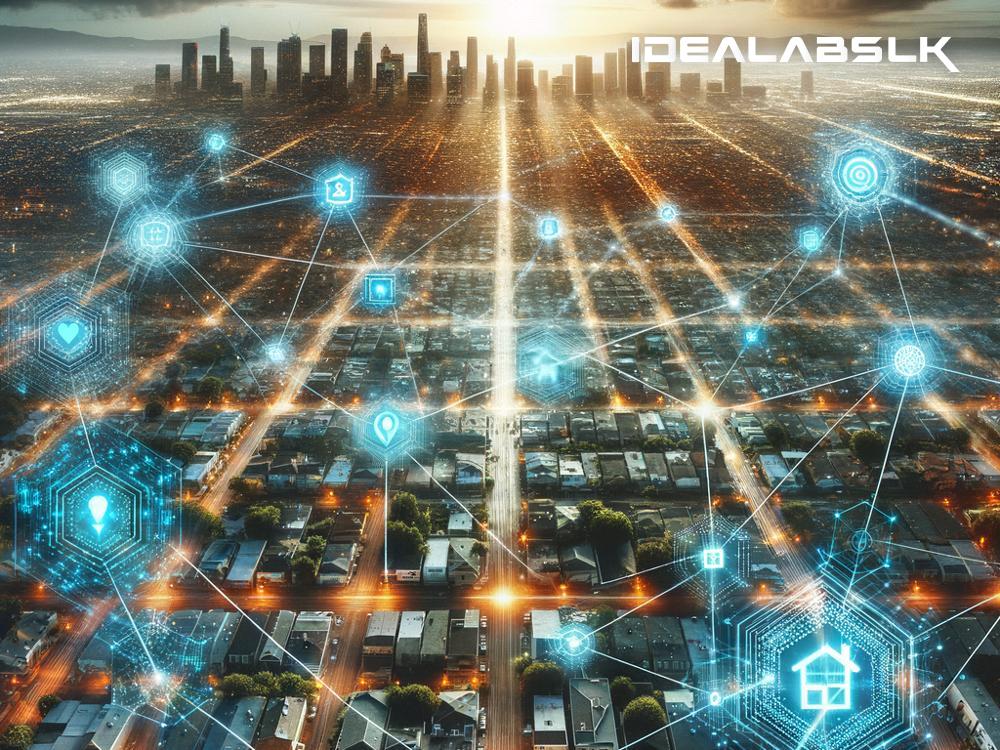Blockchain for Real Estate: Simplifying Property Ownership and Title Management
In today's fast-paced world, technology is reshaping how we manage and interact with our most valuable assets, including real estate. Amongst the most groundbreaking advancements is blockchain technology. Widely recognized for its role in cryptocurrencies like Bitcoin, blockchain is now making waves in the real estate sector. It promises a future where property ownership and title management are decentralized, simplified, and more secure. But what does this really mean, and how can it benefit you as a homeowner, investor, or real estate professional? Let's break it down.
What is Blockchain?
Imagine a digital ledger that is secure, transparent, and unchangeable, where each transaction is recorded and verified by a network of computers. This is the essence of blockchain. Unlike traditional ledgers or databases managed by a central authority (like a bank or government), a blockchain operates in a decentralized manner. This means that no single entity has control over the entire network, making it incredibly secure and tamper-proof.
The Current State of Real Estate Transactions
Traditionally, buying or selling a property involves a lot of paperwork, intermediaries, and time. There are property listings to navigate, real estate agents to work with, and piles of documents to verify and sign, not to mention the crucial step of ensuring the property's title is clear. This process can be cumbersome, expensive, and susceptible to human error or fraud.
How Can Blockchain Help?
Blockchain technology offers a revolutionary approach to managing real estate transactions. Here’s how:
1. Streamlined Transactions
Blockchain can significantly streamline the process of buying and selling property. Since records on a blockchain are secure and immutable, all parties involved can access accurate and up-to-date information instantly. This reduces the need for intermediaries like agents and lawyers, cutting down transaction times and costs.
2. Transparent and Secure Title Management
One of the most significant issues in real estate is ensuring a property's title is clear—that it's free from disputes or unknown claims. Blockchain can store property titles securely, and each transfer of ownership can be recorded transparently. This not only reduces the risk of fraud but also simplifies the process of checking a property’s title history.
3. Tokenization of Real Estate
Blockchain enables the creation of digital tokens that represent ownership or a stake in a property. This process, known as tokenization, makes it easier and less expensive for people to invest in real estate. Instead of buying an entire property, investors can purchase tokens representing a portion of the property. This opens up investment opportunities to a broader audience.
4. Decentralization
The decentralized nature of blockchain means that property records and transactions are not controlled by a single entity. This decentralization can lead to a more democratic and equitable real estate market, where information is transparent, and transactions are secure and efficient.
5. Enhanced Trust
With blockchain, all transactions are recorded chronologically and cannot be altered or deleted. This creates an immutable history of property ownership and transactions, enhancing trust among buyers, sellers, and other parties involved in real estate dealings.
The Future Ahead
While the adoption of blockchain in real estate is still in its early stages, its potential is vast. Countries and companies around the world are already experimenting with blockchain for land registration and property transactions. As the technology matures and becomes more widely understood, it could revolutionize the real estate industry, making property ownership and title management more accessible, trustworthy, and efficient for everyone.
Final Thoughts
Blockchain technology offers a promise of a more transparent, secure, and efficient real estate market. By decentralizing property ownership and title management, it opens up new opportunities for investment and simplifies the process of buying and selling properties. As we look to the future, the integration of blockchain in real estate could not only transform the industry but also provide more people with the ability to invest in and benefit from real estate assets.
In simple terms, blockchain could be the key to unlocking a world where dealing with real estate is as straightforward and secure as sending an email. The journey is just beginning, and it’s an exciting time to explore the potential of blockchain in reshaping the real estate landscape.

